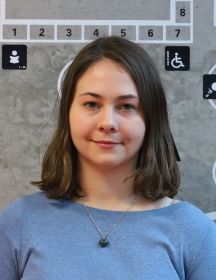Citation Management
Citation Management
Managing citations for theses, scientific articles, projects and other publications can be a time-consuming, tedious task. There is no one proper method for managing or formatting citations, but this guide will provide you with a basic introduction to some tools for managing citations , as well as an overview of common citation styles.
NTK presentation explaining the basics of Citation Management: Tools, Tips, and Best Practices
Please do not hesitate to contact us via email (info@techlib.cz) or to schedule a consultation for more detailed assistance.
New books about Citation Management
Citation management tools allow you to import citations from eResources and websites. Such tools help you organize and easily import citations into documents as footnotes or bibliographies formatted in the appropriate style. Many of these tools can also assist you in organizing personal PDF libraries of documents discovered during the research process. Most also allow you to organize your citations into folders and/or projects.
Further information in English about the pros and cons of different citation managers and how to use them can be found online (e.g. PennState, Bodleian Libraries University of Oxford).
CitacePRO.com
The library provides all registered patrons with access to CitacePRO.com , a simple and intuitive tool for creating, managing, and sharing citations. In addition to the web application, there is an MS Word toolbar plugin that enables you to insert citations into your documents when writing and conducting research.
Citace PRO is particularly helpful when writing in Czech because it uses the ČSN ISO 690 citation standard. There are many other citation styles available as well (e.g. APA, IEEE, Chicago).
Accessing Citace PRO
- Go to Citace PRO
- In Přihlášení pro instituce do Citace PRO nebo Pablikado section choose NTK: Národní technická knihovna (3rd column)
- Log in with your library username and password
- Switch to English - upper right corner - Username/Settings
Citace PRO Free: free, limited version of the software with basic functions (only for ČSN ISO 690)
Citavi
Citavi is a commercial citation management tool with many advanced functions.
EndNote
EndNote is widely used commercial citation manager often provided by universities for use by their communities.
JabRef
JabRef is an open source bibliography reference manager; its native file format is BibTeX, the standard LaTeX bibliography format and can be helpful if you are working in LaTeX and writing in English.
Mendeley
Mendeley is a free reference manager and academic social network for organizing research, collaboration with others online users, and exploring research trends.
We strongly recommend using older version of Mendeley Desktop 1.19.8. instead of the new Mendeley Reference Manager, as the new Mendeley Reference Manager still has many flaws.
Zotero
Zotero is free up to 300MB; it has collection management capabilities, citation management functions, and offers a wide variety of citation styles as well as many language versions.
Czech Citation Standard ISO ČSN 690
The Czech citation standard (ISO ČSN 690) is the Czech version of the international standard ISO 690 commonly used in the Czech Republic. This standard recommends three possible citation methods: numerical, as footnotes, or according to the author-date (Harvard) system. It recommends formats for bibliographic citations (in the list of references). A full version of this standard can be found on dedicated computers in the Periodicals Reading Room (third floor) or you can purchase a copy of it (e.g., at ÚNMZ).
Currently, 2011 version of ISO CSN 690 is still frequently used - also in most citation managers (Zotero, Mendeley), the interpretation of the new 2022 standard varies by institution.
English Citation Styles
There is no single preferred citation style in English publications and there are different preferred styles for British and American English, so you will need to check with your professor, supervisor, or with the publisher of your work to see which citation style they prefer.
Chicago Style and its Variants
The most common citation style used worldwide is the Chicago Manual of Style (CMS; most current: 18th edition), and its variants. Citation styles based directly on CMS include:
- AAA - American Anthropological Association, used in Anthropology.
- APSA - American Political Science Association, used in Political Science and International Studies.
- Turabian - often used in Social and Natural Sciences.
American Psychological Association (APA) Style
Writing and citation style commonly used in socal sciences. It is described in detail in its manual (most current: 7th edition), but many examples of its use can be found in style and grammar guidelines as well.Harvard Style
Harvard referencing (also: the Harvard system) refers to the author-date citation method. The Harvard citation style applies this method and it is common in the UK and Australia.There are many interpretations of it, so the institutions that use this method usually provide online guidelines (e.g., University of Lincoln, University of Sydney).
There is no offical institutional connection with Harvard University and the offical manual.
Modern Language Association (MLA) Style
Writing and citation style widely used in the US and Canada, especially in the humanities. The Modern Language Association publishes the detailed MLA Handbook (most current: 9th edition) and many guidelines are available online (e.g. MLA Style Center, Purdue Online Writing Lab).
Journal Publisher Styles
Different publishers typically use different styles, which may be modified versions of the US and UK styles listed above. This information is always mentioned at the instructions for authors. When in doubt, don't hesitate to contact our specialists.
Sample of publisher styles:
Your contact

Lucie Šajmanov
- lucie.sajmanov
- 232 002 547
Subjects
Materials Science & EngineeringYour contact

Beáta Soperová
- beata.soperova
- 232 002 431
Subjects
Citation Management, Medicine, EnvironmentSee also
Original Authors: Pavla Francová, Stephanie Krueger,
Kristina Millerová

